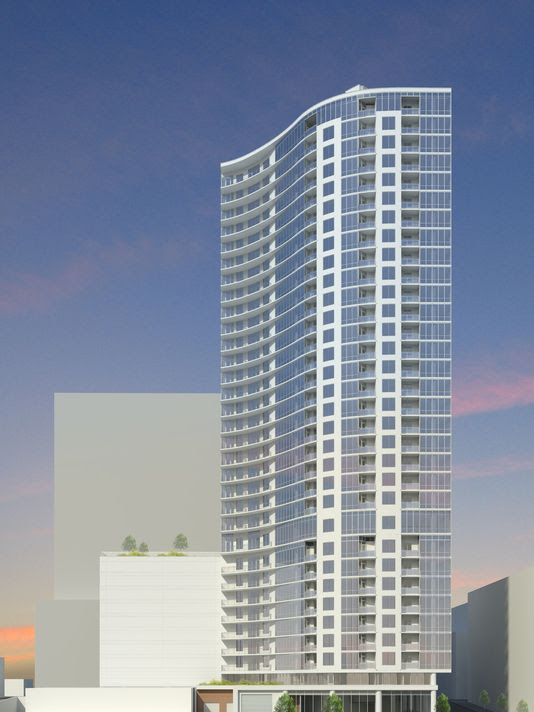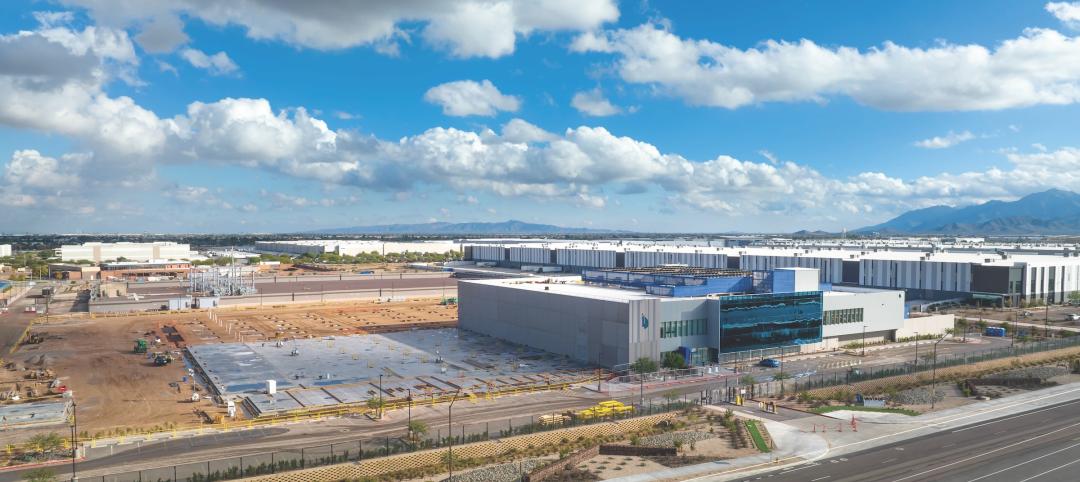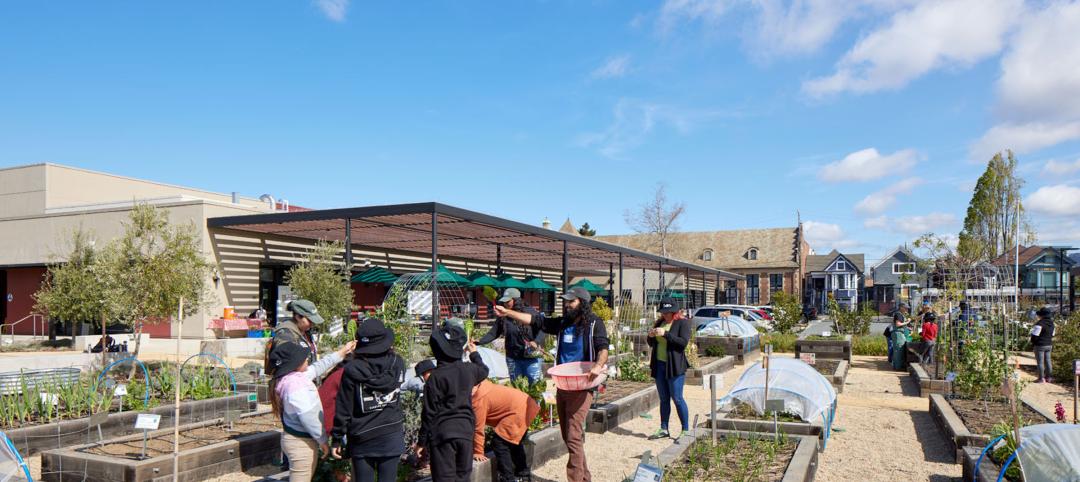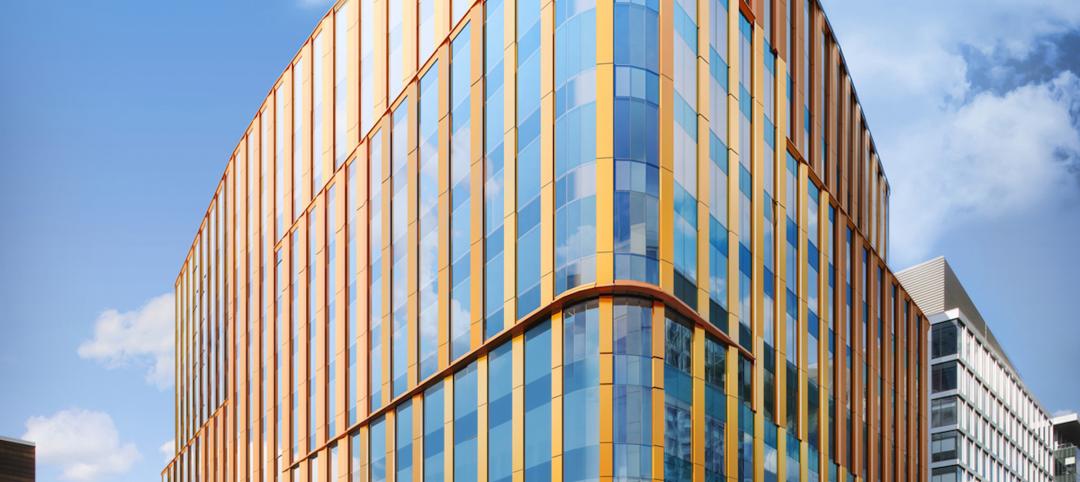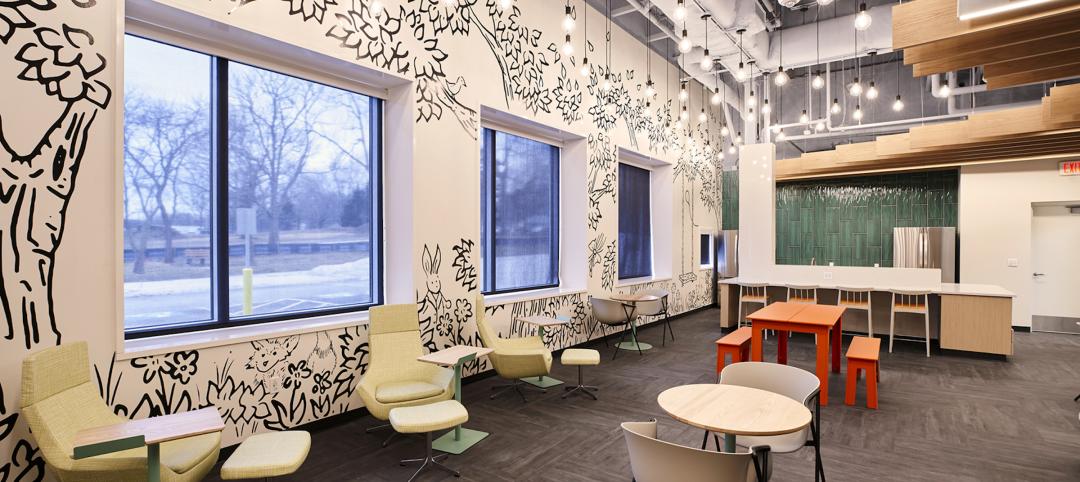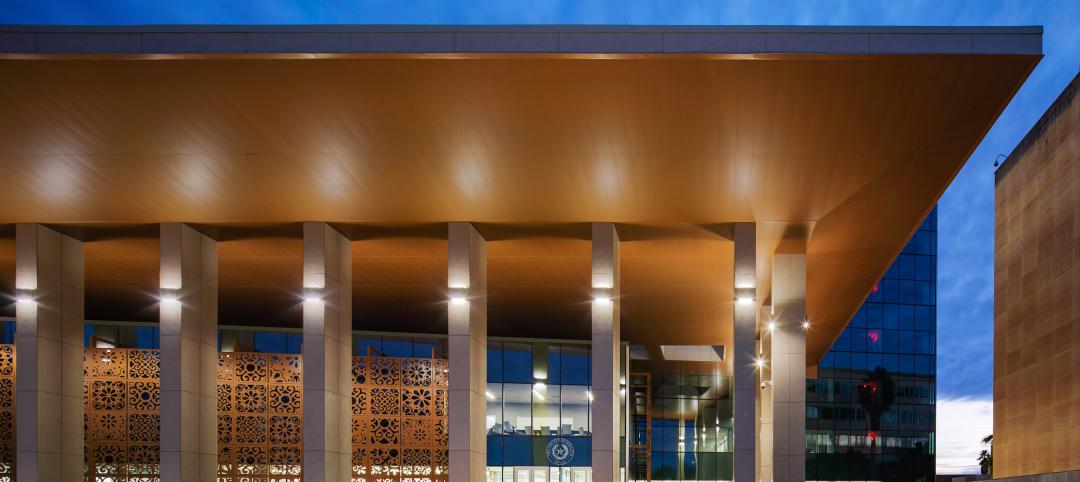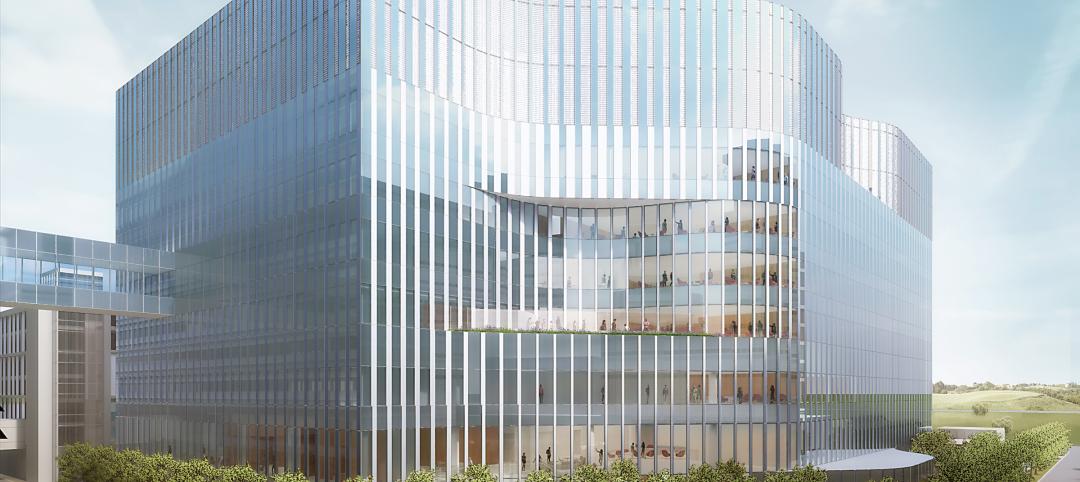Nashville’s going to look a little different in a few years.
In the upcoming months, a gleaming S-shaped tower will join the city’s burgeoning skyline. Nashville’s SoBro (South of Broadway) neighborhood is home to the new $635 million Music City Center convention center, the Country Music Hall of Fame and Museum, the new luxury Omni Nashville Hotel and a bevy of fresh, fashionable bars and restaurants.
The Music City’s mini-boom, driven by a flourishing health-care industry, is being fueled by innovative construction financing that’s helping developers keep up with the city’s surging job growth. The new SoBro tower is just one example of a project financed not with conventional construction loans but with a unique blend of equity and debt that’s being used by developers not just in Nashville, but all over the U.S.
Traditionally, tower cranes have started rising at construction sites as lending volumes go up. And while construction lending is traditionally considered risky and more difficult to underwrite, the stabilizing economy is generating a steady increase in loans.
“Lenders are feeling much more comfortable with the economy’s current state,” said Marisha Clinton, Vice President of Capital Markets for JLL. “Spreads have compressed, the market is competitive, and construction lending offers the appeal of potential high yields in a low interest rate environment.”
What’s different this time around is that lenders, particularly private equity investors, want a piece of the action. Goldman Sachs has set its sights on construction and development lending, Fortune reports. The Wall Street megabank is issuing nearly $500 million in construction loans, up from just $50 million last year. Five years ago, Goldman – known for its investment banking and trading desk more than for its construction financing – had never made a construction or development loan, according to Fortune.
As a result, capital is flowing like wet concrete. In just the first half of 2014, investors and developers secured $254 billion for construction and development starts on an unadjusted basis, ranging from sophisticated Class A office towers in gateway central business districts to manufacturing facilities located in energy-focused markets to multifamily properties in booming job markets—like the proposed tower in SoBro.
It’s no longer just about the honky-tonks in Nashville: professionals are flocking to the Music City. According to JLL’s Capital Markets research, 5.5 percent of Nashville’s multifamily inventory is under construction, compared to the national average of 3.5 percent. The robust pipeline is warranted: Forbes recently ranked Nashville as a top city for business and job growth, citing its fifth place job growth ranking among the country’s top 200 metro areas.
The project is part of a surge in Nashville construction. According to Nashville Downtown Partnership, 68 projects in downtown Nashville have been completed since 2011, and 47 are currently under construction. Since 2013 the SoBro neighborhood has seen $1.2 billion in developments including office, retail, hotel and residential properties.
Expectations for the SoBro tower are, if you will, sky-high: 33 stories at 395 feet, recessing balconies, a green rooftop with a multi-lane lap pool, hot tub, fire pits, barbeque grills and cabanas as well as a lounge, game room and fitness center, 502 parking spaces and 20,540 square feet of ground floor Class A retail space. The financing amount also towers: $91 million for the project. Once completed, SoBro will be the tallest residential building in Tennessee, offering an unobstructed view of the Nashville skyline as well as the Cumberland River.
“When you work in a booming market like Nashville, the opportunities are endless and the demand for a range of property types is huge,” said Tony Giarratana, founder of Giarratana Development and lead for the SoBro Tower development. “Folks are excited about the new designs and what it means for their community.”
Before borrowers break ground, they should know that construction lending is still not necessarily easy to come by. Lenders have very strict underwriting standards – and usually require a large amount of equity.
Essentially all developers will form a joint-venture equity partnership with investors ranging from pension funds to private equity funds to large, institutional shops. Typically, lenders will want to see anywhere from 25 to 40 percent equity from the borrower and lenders will play ball but only with well capitalized, experienced sponsorship.
While the bulk of construction lending comes from large banks based in large such as Bank of America and Wells Fargo, debt funds such as Starwood Capital are starting to provide non-recourse construction loans with higher leverage levels and a cost of debt between five and eight percent.
“Interest rates are still low and very attractive for borrowers, but the trick with construction loans is qualifying,” said David Hendrickson, Managing Director at JLL. “Equity requirements are higher than other types of financing and often these loans have some sort of recourse associated with them. But lenders are showing they are comfortable with current economic recovery and there is plenty of liquidity in the market. Plus, with the amount of mezzanine debt and joint venture equity available, the capital structure for strong projects will come together with the appropriate structuring.”
For example, according to JLL, construction completion volumes have reached 132 million square feet through May 2014, up from 2013’s mark of 90.8 million square feet. And there is more in the pipeline: Class A industrial product is scarce and speculative, national development for the sector has reached 118 million square feet.
Efforts are ramping up in office space as well due to expansionary efforts and increased hiring activity. JLL reports construction volumes have jumped 38.4 percent to 65.4 million square feet compared to year end 2013 levels. However, in the office sector, the vast majority of the development pipeline is pre-leased, unlike the industrial and multi-family sectors.
Should the investment community be shovel ready?
“Construction lending is strong but rational,” said Hendrickson. “Loans are competitively priced and the current real estate fundamentals support a healthy amount of development.”
Related Stories
Giants 400 | Nov 14, 2023
Top 90 Justice Facility Architecture Firms for 2023
DLR Group, Stantec, HDR, HOK, and Elevatus Architecture top BD+C's ranking of the nation's largest justice facility architecture and architecture engineering (AE) firms for 2023, as reported in the 2023 Giants 400 Report. Note: This ranking includes revenue from all public safety/justice facilities buildings work, including correctional facilities, fire stations, jails, police stations, and prisons.
Giants 400 | Nov 13, 2023
Top 65 Airport Facility Architecture Firms for 2023
Gensler, Corgan, PGAL, and HOK top BD+C's ranking of the nation's largest airport terminal and airport facilities architecture and architecture engineering (AE) firms for 2023, as reported in the 2023 Giants 400 Report.
Data Centers | Nov 13, 2023
Data center sector trends for 2023-2024
Demand for more data centers is soaring, but delivery can be stymied by supply delays, manpower shortages, and NIMBYism.
Education Facilities | Nov 9, 2023
Oakland schools’ central kitchen cooks up lessons along with 30,000 meals daily
CAW Architects recently completed a facility for the Oakland, Calif., school district that feeds students and teaches them how to grow, harvest, and cook produce grown onsite. The production kitchen at the Unified School District Central Kitchen, Instructional Farm, and Education Center, (“The Center”) prepares and distributes about 30,000 meals a day for district schools lacking their own kitchens.
Laboratories | Nov 8, 2023
Boston’s FORUM building to support cutting-edge life sciences research and development
Global real estate companies Lendlease and Ivanhoé Cambridge recently announced the topping-out of FORUM, a nine-story, 350,000-sf life science building in Boston. Located in Boston Landing, a 15-acre mixed-use community, the $545 million project will achieve operational net zero carbon upon completion in 2024.
Retail Centers | Nov 7, 2023
Omnichannel experiences, mixed-use development among top retail design trends for 2023-2024
Retailer survival continues to hinge on retail design trends like blending online and in-person shopping and mixing retail with other building types, such as offices and residential.
Giants 400 | Nov 6, 2023
Top 110 Cultural Facility Architecture Firms for 2023
Populous, Gensler, HGA, DLR Group, and Quinn Evans top BD+C's ranking of the nation's largest cultural facilities sector architecture and architecture engineering (AE) firms for 2023, as reported in the 2023 Giants 400 Report. Note: This ranking includes revenue from all cultural building sectors, including concert venues, art galleries, museums, performing arts centers, and public libraries.
Giants 400 | Nov 6, 2023
Top 170 Government Building Architecture Firms for 2023
Page Southerland Page, Gensler, Stantec, HOK, and Skidmore, Owings & Merrill top BD+C's ranking of the nation's largest government building sector architecture and architecture engineering (AE) firms for 2023, as reported in the 2023 Giants 400 Report. Note: This ranking includes revenue from all government building sectors, including federal, state, local, military, and Veterans Affairs (VA) buildings.
Designers | Nov 6, 2023
DLR Group opens office in Nashville, Tenn.
DLR Group is expanding its presence in the Southeast with the opening of an office in downtown Nashville, Tenn.—a collaborative effort led by DLR Group Principals Matthew Gulsvig, AIA, LEED AP, and Randall Coy.
Healthcare Facilities | Nov 3, 2023
The University of Chicago Medicine is building its city’s first freestanding cancer center with inpatient and outpatient services
The University of Chicago Medicine (UChicago Medicine) is building Chicago’s first freestanding cancer center with inpatient and outpatient services. Aiming to bridge longstanding health disparities on Chicago’s South Side, the $815 million project will consolidate care and about 200 team members currently spread across at least five buildings. The new facility, which broke ground in September, is expected to open to patients in spring 2027.


